第135章 IX(4)
Old theories, and old men who cling to them, must take themselves out of the way as the new generation with its fresh thoughts and altered habits of mind comes forward to take the place of that which is dying out. This was a truth which the fiery old theorist found it very hard to learn, and harder to bear, as it was forced upon him. For the hour of his lecture was succeeded by that of a younger and far more popular professor. As his lecture drew towards its close, the benches, thinly sprinkled with students, began to fill up; the doors creaked open and banged back oftener and oftener, until at last the sound grew almost continuous, and the voice of the lecturer became a leonine growl as he strove in vain to be heard over the noise of doors and footsteps.
Broussais was now sixty-two years old. The new generation had outgrown his doctrines, and the Professor for whose hour the benches had filled themselves belonged to that new generation. Gabriel Andral was little more than half the age of Broussais, in the full prime and vigor of manhood at thirty-seven years. He was a rapid, fluent, fervid, and imaginative speaker, pleasing in aspect and manner,--a strong contrast to the harsh, vituperative old man who had just preceded him. His Clinique Medicale is still valuable as a collection of cases, and his researches on the blood, conducted in association with Gavarret, contributed new and valuable facts to science. But I remember him chiefly as one of those instructors whose natural eloquence made it delightful to listen to him. I doubt if I or my fellow-students did full justice either to him or to the famous physician of Hotel Dieu, Chomel. We had addicted ourselves almost too closely to the words of another master, by whom we were ready to swear as against all teachers that ever were or ever would be.
This object of our reverence, I might almost say idolatry, was one whose name is well known to most of the young men before me, even to those who may know comparatively little of his works and teachings.
Pierre Charles Alexandre Louis, at the age of forty-seven, as I recall him, was a tall, rather spare, dignified personage, of serene and grave aspect, but with a pleasant smile and kindly voice for the student with whom he came into personal relations. If I summed up the lessons of Louis in two expressions, they would be these; I do not hold him answerable for the words, but I will condense them after my own fashion in French, and then give them to you, expanded somewhat, in English:
Formez toujours des idees nettes.
Fuyez toujours les a peu pres.
Always make sure that you form a distinct and clear idea of the matter you are considering.
Always avoid vague approximations where exact estimates are possible; about so many,--about so much, instead of the precise number and quantity.
Now, if there is anything on which the biological sciences have prided themselves in these latter years it is the substitution of quantitative for qualitative formulae. The "numerical system," of which Louis was the great advocate, if not the absolute originator, was an attempt to substitute series of carefully recorded facts, rigidly counted and closely compared, for those never-ending records of vague, unverifiable conclusions with which the classics of the healing art were overloaded. The history of practical medicine had been like the story of the Danaides. "Experience " had been, from time immemorial, pouring its flowing treasures into buckets full of holes. At the existing rate of supply and leakage they would never be filled; nothing would ever be settled in medicine. But cases thoroughly recorded and mathematically analyzed would always be available for future use, and when accumulated in sufficient number would lead to results which would be trustworthy, and belong to science.
You young men who are following the hospitals hardly know how much you are indebted to Louis. I say nothing of his Researches on Phthisis or his great work on Typhoid Fever. But I consider his modest and brief Essay on Bleeding in some Inflammatory Diseases, based on cases carefully observed and numerically analyzed, one of the most important written contributions to practical medicine, to the treatment of internal disease, of this century, if not since the days of Sydenham. The lancet was the magician's wand of the dark ages of medicine. The old physicians not only believed in its general efficacy as a wonder-worker in disease, but they believed that each malady could be successfully attacked from some special part of the body,--the strategic point which commanded the seat of the morbid affection. On a figure given in the curious old work of John de Ketam, no less than thirty-eight separate places are marked as the proper ones to bleed from, in different diseases. Even Louis, who had not wholly given up venesection, used now and then to order that a patient suffering from headache should be bled in the foot, in preference to any other part.
But what Louis did was this: he showed by a strict analysis of numerous cases that bleeding did not strangle,--jugulate was the word then used,--acute diseases, more especially pneumonia. This was not a reform,--it was a revolution. It was followed up in this country by the remarkable Discourse of Dr. Jacob Bigelow upon Self-Limited Diseases, which has, I believe, done more than any other work or essay in our own language to rescue the practice of medicine from the slavery to the drugging system which was a part of the inheritance of the profession.